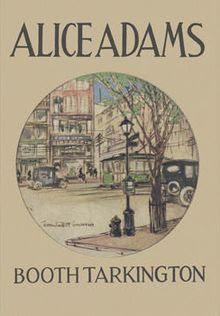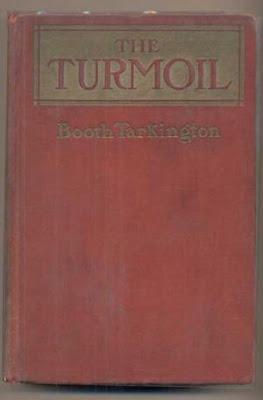
I blame my grandmother. When I lay sick with measles in a darkened room, she read to me. And she read books from her girlhood -- at the turn of the previous century. And when I could once again read for myself, I devoured all her girlhood books -- Little Women, An Old Fashioned Girl, Aunt Jane's Nieces, Freckles, Girl of the Limberlost, and, as they say, many more. It never occurred to me in the reading that these were period pieces -- the characters seemed as real and as engaging as any people I knew.
So, in a way, I'm still quite at home in those times. Recently, on reading an article about Booth Tarkington in the New Yorker (HERE), I was inspired to read more of his work, in spite of the article's sometimes disparaging tone. I'd long been a fan of Seventeen and Penrod (meaning I've read and reread them) but though I had a copy of Tarkington's Pulitzer Prize winning Alice Adams, I didn't remember reading it. I may have done for an American Lit class almost sixty years ago -- which could account for its presence among my books.
What a pleasant surprise! I was entranced by the story and read eagerly, wanting to find out what happened to Alice. And I realized that what it was, was a novel of manners -- not unlike Jane Austen.
Wikipedia defines a novel of manners as: "a work of fiction that recreates a social world, conveying with finely detailed observation the customs, values, and mores of a highly developed and complex society."
Whether it's Austen's home life of the English gentry in the 19th century, or Updike's trenchant skewering of the American suburbs of the mid-20th century, or Tarkington's astute depiction of middle-class life in early 1900's Mid-West, to me, it's like time travel. And, in well done novels, an excellent mirror of parts of society at certain times.
I moved on to The Turmoil -- also on my shelves. My copy, probably from a library book sale, has on its inside page "Norma Weaver--1917."
I hope she enjoyed it as much as I am. I had to force myself to put it down in order to write this post.

